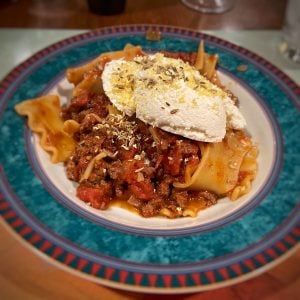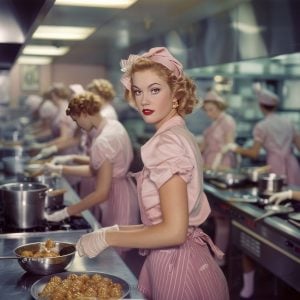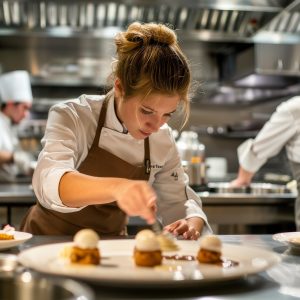What Does It Take To Become A Professional Chef
I have asked many chefs over the years what it takes to be successful in the food industry and decided to compile a list of their answers for you. At the end of the post, I also compiled some of the traits they find important to be successfully in this field.
What I find interesting from looking at the chef’s responses is the common thread of how important it is to gain some experience before applying to a culinary school.
What Advice Would The Chefs Give To Anyone Thinking Of Attending Culinary School?
Chef Ruth Gresser, owner of Pizzeria Paradiso
“Work in a professional kitchen full time for at least one year before you decide to invest in school. During that time you should be able to determine if the food business suits you. If it does, your experience should lend some help in determining which school best satisfies your food interest.”
Chef Jeff Huff, instructor at the Culinary Center of Monterey
“Do your own homework. Work in the industry whenever possible, during school holidays, nights, weekends or during summer vacation. Get exposed to the environment, the pace. There is no better way to know than by actually trying it out before you commit to a culinary school. By this I don’t mean to burn the candle at both ends and let your scholastic experience deteriorate at the expense of going to school AND working. Rather, when possible, get a position at a local restaurant, hotel or golf club and just get a feel for what it’s like.”
Chef Jennifer Field, creator of www.pastrychefonline.com
“My best advice would be to work in a kitchen before deciding to go to culinary school. While Orlando Culinary Academy will accept anyone, experience or no, the Culinary Institute of America (CIA) requires 2 years of kitchen experience before they will accept you. I think this is a sound practice. With the rise in popularity of The Food Network and other cooking shows (Top Chef, Hell’s Kitchen, etc), many young people might romanticize what it means to work in a professional kitchen. Give it at least a few months to see if working in a kitchen will be a good fit for you.”
Chef Martin Laprise, author of My Daughter Wants to Be A Chef
“Go try it out first, and that goes for any career. Don’t EVER start culinary school without having worked in a restaurant first. Do dishes, wash the floor, even just ask to observe the kitchen during service time. It may scare you away, or it may re-enforce your desire to cook for a living – either way, you should find that out before spending money and time!”
Chef Todd Mohr, founder of Savor Hospitality Cooking School
“Begin with the end result in mind. Determine precisely what career you want to develop based on your new education. While I was some 15 years older than most students when I went to culinary school, I was curious about the amount of students that didn’t know what they wanted to do after graduation. Find where your passion is and pursue it. Perhaps you have dreams of being an Executive Chef at a large hotel or upscale restaurant, or an institutional facility like a hospital, college, or business cafeteria.”
Chef Bertrand Chemel, Celebrity Chef
“The main advice I would give the student is to be dedicated and love what he or she is doing. He or she needs to have a willingness to learn and lots of passion. You can’t be in this business simply because you are looking for a job. As a chef, you work hard to refine your craft and, while you may not necessarily be in school for as long as a doctor or a lawyer, you definitely need to work as hard in order to become successful. It’s similar to the situation of a painter or an artist; they work very long hours to perfect their talent and their art.”
What Are Some Personal Traits Chefs Find Necessary and Helpful?
Chef Ruth Gresser – Organized, resilient, goal oriented, a little compulsive, an ability to handle stress, social.
Chef Jeff Huff – Professional, respectful, dedicated, hardworking, organized
Chef Jennifer Field – Passion for food, ability to work in fast paced environment, attention to detail, leader
Chef Martin Laprise – Good listener, speedy, sense of humor, disciplined, leader
















4 Responses
I’m glad you compiled this list, RG. I think so many young people become disillusioned once they graduate from culinary school, or they are shell-shocked by their externship. Just like you wouldn’t buy a care w/o a test drive, you shouldn’t think you’d like a certain job w/o first giving it a shot.
I am certainly thrilled when I read everyone’s thoughts and opinions about culinary school. All of the advantages & disadvantages definitely help me , and I’m sure others, on their way to greatness in a kitchen. I know its very likely to start out a line cook at a causal full service restaurant but the thought of coming out strong and taking a chef position somewhere is very worth busting your tail in school to aim for…
Hello, looking for advise of problem i have, we have a place by us that serves $1 burger on thursday. it kills our business. any advise what a restaurant can do? thanks gene
Offer a sample menu or have a happy hour.